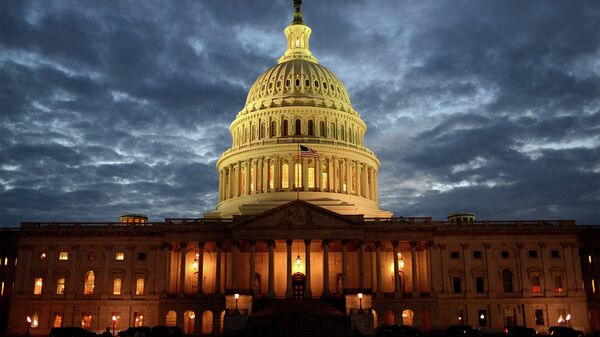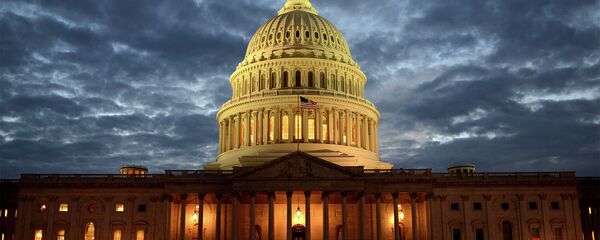What it’s all about
In a vote in June, the Senate overwhelmingly passed the Russia sanctions bill 98-2. The document was then submitted to the House for approval but
"The problem is the Senate screwed up," House Majority Leader Kevin McCarthy told reporters on June 26.
“Without significant amendments”
Senator Ben Cardin said on June 24 that this issue was resolved without significant amendments to the draft law.
The original text contained a proposal to prohibit US corporations and individuals from lending to Russian banks for longer than 14 days.
Another proposal limits the time frame for financing Russian oil and gas companies to maximum 30 days. The law also limits the right of the US president to lift sanctions.
The bill allows the president to sanction US companies planning to invest more than $5 million a year or $1 million at a time in the construction of Russian export pipelines as well as providing services or information support to Russian enterprises.
The draft also outlines measures to hamper the construction by Russia of the Nord Stream 2 gas pipeline.
Russian, EU opposition
In June, the Kremlin spokesman Dmitry Peskov said that Russia had no intention to engage in any sanctions war with the United States.
“This is not our choice,” Peskov said.
The EU has been equally unhappy about the new sanctions Washington wants to slap on Russia, especially where it concerns the planned construction of the Nord Stream 2 gas pipeline.
German Foreign Minister Sigmar Gabriel and Austrian Federal Chancellor Christian Kern hit back at the proposed US sanctions that would threaten European companies participating in the Nord Stream 2 pipeline project, accusing the US of trying to phase out its main rival on the market.
“Europe’s energy supply is a matter for Europe, and not for the United States of America,” Gabriel and Kern said in a joint statement.
“We decide who supplies us with energy, and how they do it, and we do so based on transparency and on free market principles,” the statement added.
In an interview with Sputnik, the European Commission’s Vice-President for Energy Maros Sefcovic said that the United States had not coordinated with the EU the possible introduction of new sanctions against Russia.
Trump’s position
The New York Times wrote that the White House was already discussing this issue with the lawmakers.
“The White House is quietly lobbying House Republicans to weaken a bill overwhelmingly passed by the Senate last week that would slap tough new sanctions on Russia for its meddling in the 2016 election and allow Congress to block any future move by President Trump to lift any penalties against Moscow,” the newspaper wrote.
It added that the effort is designed to head off “an awkward and politically damaging veto fight between the Trump administration and the Republican-controlled Congress.”
On June 15, the US Senate voted in favor of new sanctions against Russia over its alleged interference in the US presidential election in 2016, the allegation which Russia strongly denies.
The new sanctions include additional punitive measures against Russia’s defense, intelligence, mining, shipping and railway industries and restrict dealings with the country's banks and energy companies.




